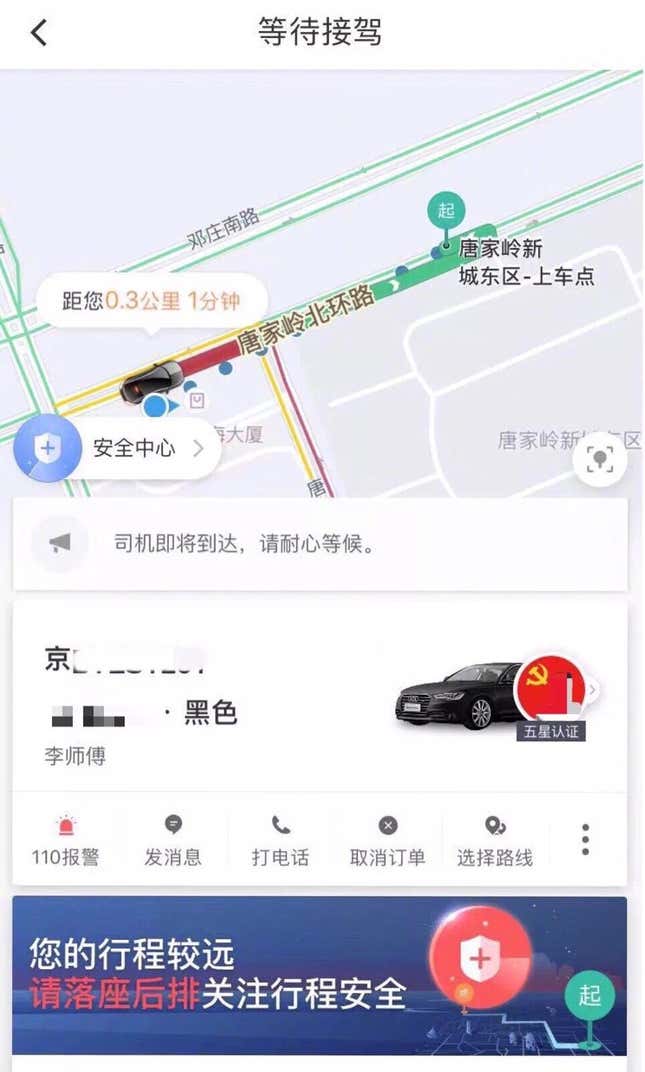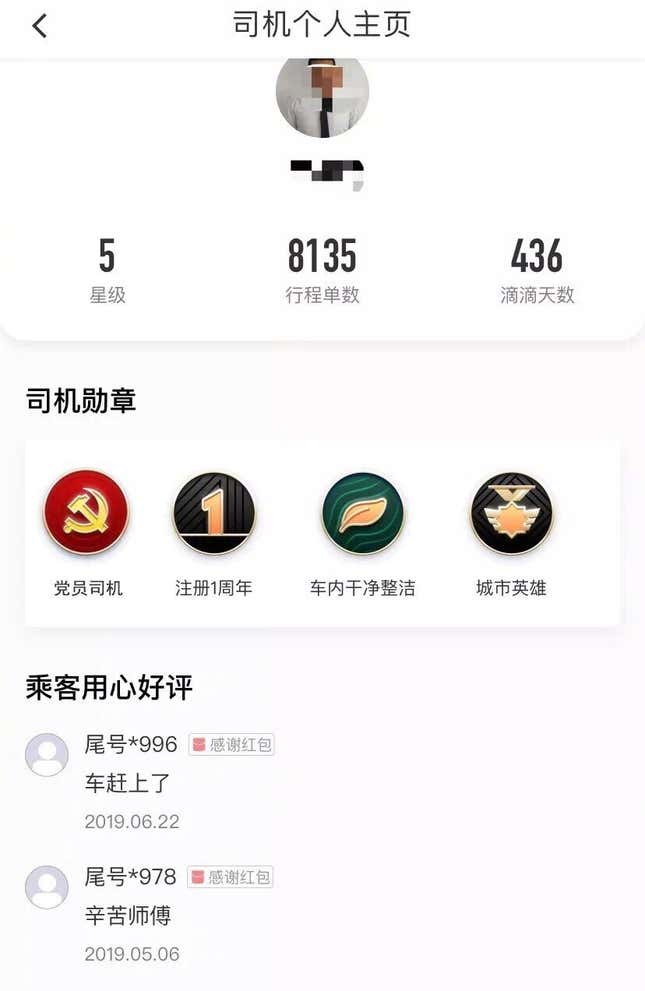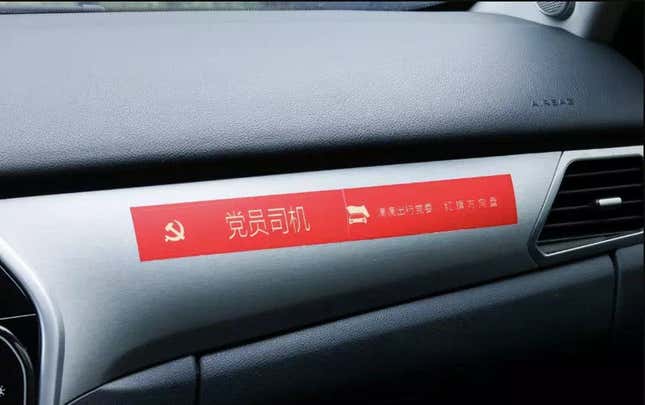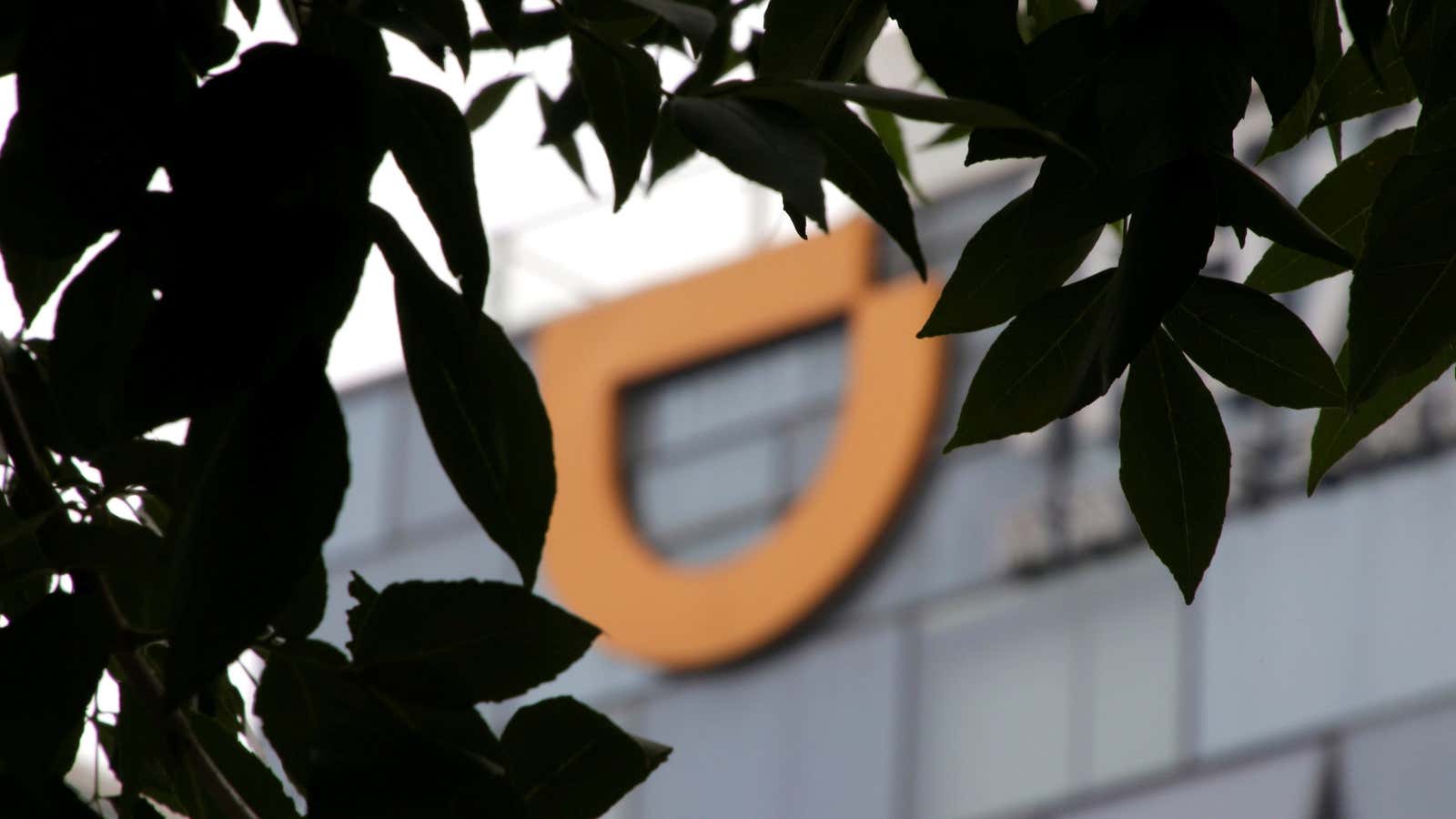Users of China’s largest ride-hailing firm Didi Chuxing can now learn more about the drivers than their surnames and their model of car. They will know if the driver is a member of the ruling Chinese Communist Party.
Didi announced last Friday (Sept. 20) that users of its premium service, Licheng Zhuanche, would start to see some of the drivers identified as Party members (link in Chinese) on the platform in Beijing. After the user orders a car, they can check to see if the assigned driver’s profile photo has a red background, accompanied by a Party emblem. If so, the user can click into the driver’s profile and see a “badge”—a round icon— and the caption “Party Member Driver,” alongside any other “badges” such as “Clean Car Interior,” and “Registered Over a Year.”



The lucky ones that get to ride in a Party Member Driver’s car will find a similar red sticker on the dashboard.
Drivers can choose whether or not they want to be identified as a Party member, and this identification will not affect their “dispatch or service,” according to a spokesperson at Didi.
Becoming a Party member is a symbol of status in China. It can also offer such privileges as better benefits and promotions at state-owned firms. The public image of Party members is quite positive. Chinese propaganda depicts them as individuals who would sacrifice their own interests for the sake of the “ordinary people”—those who are not Party members.
The new initiative—only available in mainland China—is part of Didi’s “Red Flag Steering Wheel”program, which was unveiled last November. The program is meant to step up the company’s efforts to boost the numbers and influence of Party members within its ranks. Under Chinese laws, any organization that has more than three Party members (link in Chinese) is required to set up a Party committee. The committee is meant to hold regular meetings and discussions on the Party and the Chinese government’s latest policies. In the past few years, several Chinese tech giants, including voice-recognition firm iFlytek and smartphone maker Xiaomi, have launched Party units.
Didi’s Red Flag program comes as the Chinese government tries to exert more influence on the private sector. Recently, the authorities in Hangzhou, home to Alibaba, sent government officials to 100 private companies including the e-commerce giant and car maker Geely as “a means to boost the local manufacturing industry.” The officials are meant to help the firms sort out government-related matters and answer any questions on policy. China’s biggest search engine Baidu, and video streaming app Kuaishou have also collaborated with the state-owned People’s Daily newspaper to enhance their digital media operations.
Observers say they worry about Party unit’s potential interference in private companies’ daily operations.
China has more than 90 million Party members, who undergo a lengthy process that includes submitting an application stating their reason for wanting to join, and attending lectures on the Party’s history.
